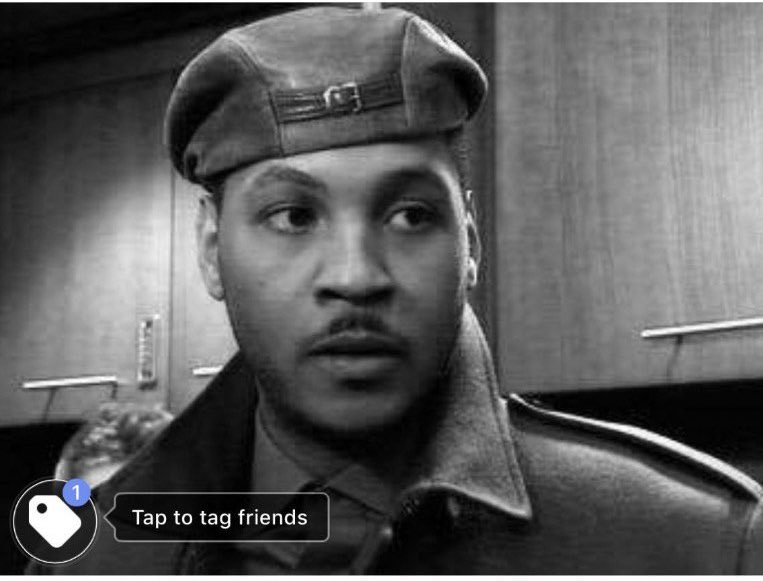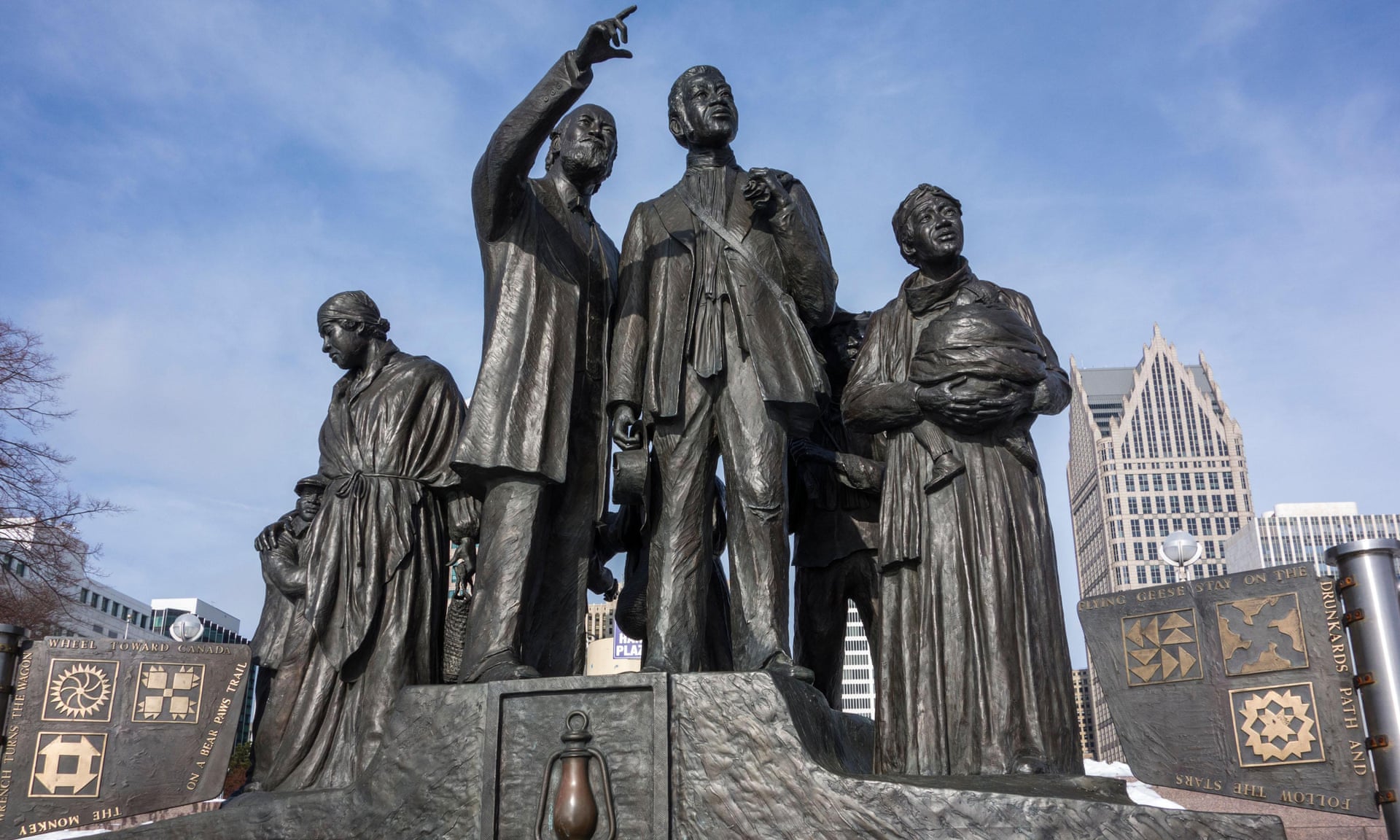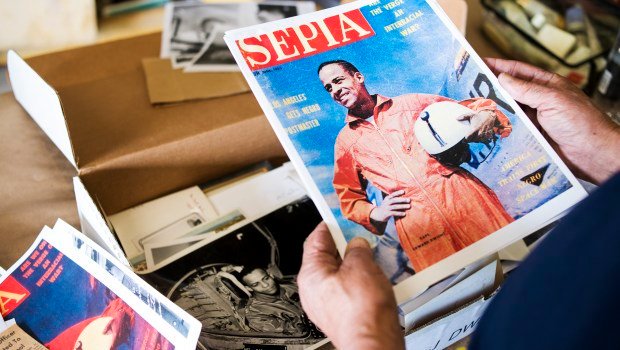You are using an out of date browser. It may not display this or other websites correctly.
You should upgrade or use an alternative browser.
You should upgrade or use an alternative browser.
Historical Beef #10: The Black Race Space Race - now a motion picture
- Thread starter Professor Emeritus
- Start date
More options
Who Replied?Gritsngravy
Superstar
I still want to become an astronaut
I'm watching this on Disney + now.
Relatedly, what effect did Herbie Hancock have on afro futurism? What effect did space travel have on Herbie? The show seemed to imply there was some connection.
So I have Head Hunters playing in one ear as I watch the show. And it goes hard.
Relatedly, what effect did Herbie Hancock have on afro futurism? What effect did space travel have on Herbie? The show seemed to imply there was some connection.
So I have Head Hunters playing in one ear as I watch the show. And it goes hard.
Y'all know about the USA and the USSR and their "Space Race" - who would be the first to put a man in space, the first to orbit the Earth, the first to reach the moon. Less often told is the racial component to the rivalry - the fight to see who would put the first Black man in space.
The USA thought of it first. In 1962 the legendary journalist Edward Murrow, working for JFK to improve the nation's international image, suggested to NASA that putting a Black man in space would be a boost for an America in the grips of the Civil Rights struggle. Jealous for the fame that the USSR's first man in space was receiving, he wrote to NASA:
After consultation with JFK himself, NASA agreed. They went to Whitney Young, executive director of the Urban League, for advice on who to select. Together they put their sights on Ed Dwight Jr.

Wait, no, this is Ed Dwight Jr.

How the hell does a young Black man in 1961 get in position to join the space program?
Ed, the son of a 2nd baseman for the Kansas City Monarchs, was a unicorn. Demonstrably intelligent from the moment he started talking, he got his first library card at 4 and started hanging out at the local airport at 6. By the time he was 9 he was working four jobs - delivering food for his parents' restaurant, running two paper routes every morning, and cleaning out planes at the airport. But his mind was always in the clouds.
It remained a fantasy for years, until one day Ed picked up his papers and couldn't believe his eyes.
Ed was obsessed with his vision and had the determination to carry it through. He went to the library and found pilot manuals, memorized every one of them. He went to the local community college and got an associate's degree in Aeronautical Engineering. He joined the Air Force and was selected for pilot school. He nailed the flight certification testing with an almost perfect score (due to all those manuals he had memorized) and quickly rose to captain, was in the pipeline for major. At night he studied at ASU and earned his B.S. in Aeronautical Engineering. And he lived in the air, picking up more flight time faster than any other pilot in his class. All of his dreams were being realized.
He couldn't have imagined that another dream was possible.
The requirements to become an astronaut were stringent. The candidates had to be in their 20s, with at least 1,500 hours of flight time in jets, and hold an engineering degree. When JFK's administration went looking for a Black man who had those qualifications at a time when pilot programs had only recently desegregated, they found there was literally one such man in the entire country.
Ed Dwight Jr.
Ed accepted the invitation and joined the advanced test pilot school for astronaut candidates. The school was headed by none other than Chuck Yeager, the first man to break the speed of sound, the most famous test pilot in the world. The had rigorous exams and flight tests on a weekly basis.
But Ed had far more responsibilities than advanced test pilot school. As the first black man to be considered for the space program, he was a celebrity. Every weekend he was sent around touring America. He was speaking to business leaders, to schools, to military recruits. Everywhere he went, he was the "Black astronaut candidate".

On one hand, he's a hero to many. On the other hand, he is facing constant doubt. Racist reporters questioned whether he was intelligent enough to fly a spacecraft. Racist politicians were even worse, discounting the entire Black race's suitability for spaceflight.
Within the space program itself it was even worse. Ed faced discrimination from both superiors and classmates. As the only candidate who had to spend 3 days a week giving speeches across America, he had logistic and mental pressures unlike any other. Yeager regularly called him into his office and tried to convince him to quit, telling him he was showing weakness.

The only thing that protected Ed was the backing of JFK himself. Despite the naysayers and the extra pressures, Ed Dwight Jr. successfully graduated from advanced test pilot school and became qualified as a potential astronaut candidate. But in 1963, when the next class of 14 astronaut candidates was announced (5 of whom would eventually walk on the moon), Ed was not selected.
He stayed in the Air Force, still hopeful that he would be chosen in the next class. But when Kennedy was assassinated, Ed lost his backer. Despite his status as one of the most qualified young test pilots in the Air Force, he was shuffled around to military assignments that had nothing to do with astronaut preparation. Another class was selected and again Ed was not on the list. Discouraged and tired of the discrimination he faced, he left the military in 1966.
That isn't to say that Ed's story ends there, or that he didn't have a successful life. Ed became a systems engineer for IBM and then worked as an aviation consultant. Soon he started his own business, and then another, and then another, operating successful restaurants and one of the largest real estate development companies in Denver. He became fascinated with art and went back to school to earn an M.F.A. in Sculpture. Moved by his growing awareness of Black history in America and Black stories that had never been told, he earned commissions to make Black History sculptures across America.
Today Ed, 86 years old and still going strong, is the owner and operator of the 25,000 square foot Ed Dwight Studios in Denver. He has created 129 memorial sculptures and over 18,000 gallery pieces. Just this month (likely inspired by the same stories I read last year), a documentary of his life was broadcast by the Smithsonian Channel.





Despite a happy and successful life, he still remembers those impossible dreams, that growth from a teenager in Kansas City who didn't believe Black folk were allowed to fly to a young Air Force test pilot who briefly thought he might reach the stars. He wonders what could have been if TVs across 1960s America had shown a young Black man striding across that platform into the Apollo shuttle and taking off for the moon.

To be continued....
He's finally going to space brehs.


Ed Dwight, NASA's 1st Black astronaut candidate, finally set to go to space on Blue Origin
Blue Origin is set to launch New Shepard NS-25, its seventh human flight to space Sunday carrying 90-year-old Ed Dwight, the U.S.'s first Black astronaut.
Similar threads
- Replies
- 242
- Views
- 9K

